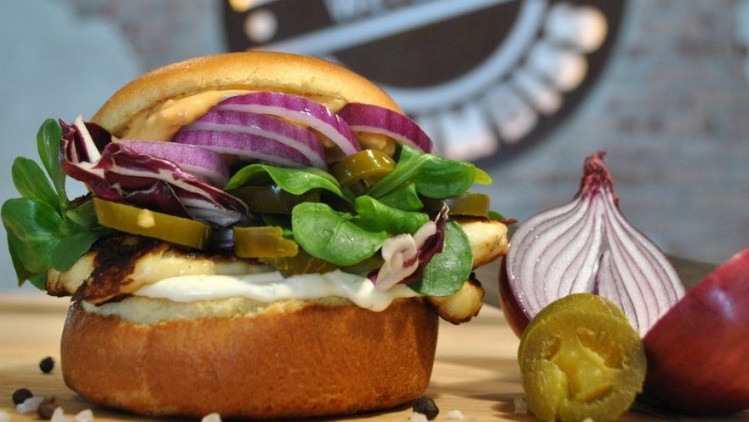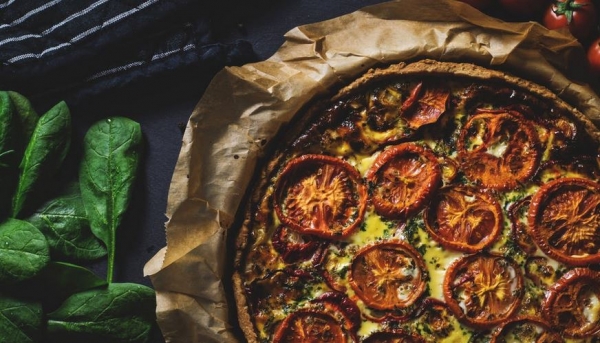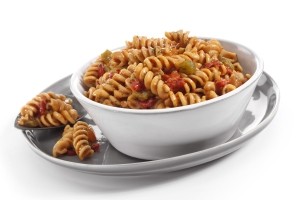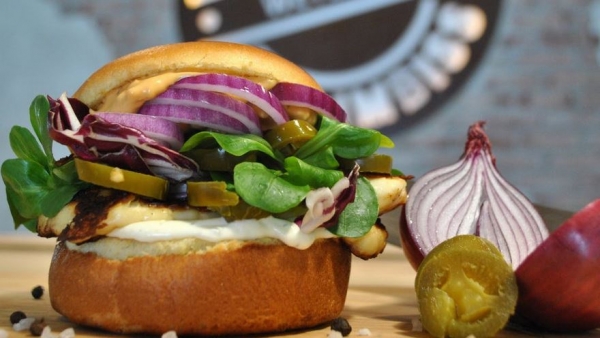They said veganism wouldn’t catch on… they were wrong

Just five years ago, grassroots free-from food producers were on the outside of the mainstream, accused of overambitious thinking.
Their products, many said, had their place among a small group of consumers who, for various reasons, were forgoing dairy, gluten, meat, etc.
Now, however, the minority are on their way to being the majority – and quickly.
Not only is there a rise in the number of specialist foods available, from dairy-free to gluten-free and meat-free, the quality of the products on the market has never been as good.
As more consumers show an interest in the category, makers have upped their game by launching tastier brands with appeal to all types of diets.
Increased interest comes from either necessity, from those with genuine intolerances and allergies, as well as those who voluntarily cut out certain types of food for wellbeing reasons.
While there is growth in the market, younger consumers with food allergies actually fear eating out, with 64% of 16 to 24-year-old sufferers avoiding food in pubs and restaurants, a recent Food Standards Agency survey showed.
Their fear comes from a lack of trust that dining venues won’t genuinely take care of their needs or because there won’t be any options for them.
This fact should spur pubs on to take action and firm up their free-from offerings, ensuring food allergy sufferers can have peace of mind when dining with them.
Pubs to take action
Popular options
Gordon Lauder, managing director of frozen food distributor Central Foods:
“One of the biggest current trends in foodservice is the increase in demand from consumers for free-from and food without items, such as vegan and gluten-free options.
“Diners with dietary requirements not only expect there to be options on a menu that are suitable for their needs, they quite rightly expect that those options will be just as delicious as any other item that’s being served.
“Increasingly, items that are suitable for various dietary requirements are being developed, which means they are really versatile in who they will appeal to. This all makes it easier for the busy food professional working in a pub and helps to ensure that there are always suitable menu items on hand – whatever the demand or dietary requirement.
“To avoid menu proliferation, and to keep it as simple as possible in the kitchen, offer items that will appeal to the maximum number of diners, so opt for gluten-free dishes that will also suit those avoiding dairy, as well as customers who are vegetarian and vegan, for example.”
Shockingly, the fearful young adults may unfortunately have a point. A new survey by hospitality recruitment firm The Change Group claims that one in five chefs asked believed the free-from dishes they serve contain a small amount of restricted ingredients.
The unfortunate stat is in contrast to the 95% of chefs in the report who say their restaurants cater for food intolerances and healthy eating, with half also providing on-the-job training on diet and nutrition. However, 18% of chefs said they have worked in kitchens that operate ‘soft’ policy on food intolerances.
Feedback from the 102 chefs asked by The Change Group said gluten is the number one intolerance taken into consideration in kitchens. Other food intolerances and allergies, mostly accommodated for, include dairy (50%) and egg (43%) ingredients. Only 47% of chefs said their restaurants catered to people with a nut allergy, which is potentially fatal.
“The reality of today’s busy, often under-staffed kitchens, is that a significant minority of chefs are reporting that they work in restaurants that can allow contaminants in dishes that are meant to be vegan or gluten-free,” says Craig Allen, co-founder and director of The Change Group.
“Equally, many diners may still need to check with the waiter that a dish is suitable to their needs as this may not be marked on the menu.”
There’s no doubt that food and drink made for lactose-intolerant consumers, coeliacs and those with other food allergies is an important area to pay attention to, as both segments tap into rising income streams. Yet, meat-free and vegan foods have seen significant interest from operators recently.
It is estimated there are more than 3m vegetarians living in the UK, equating to roughly 6% of the population. Meanwhile, 14% of Brits converted to the diet this year alone, according to statistics from insurance comparison site comparethemarket.com, while the UK Vegetarian Society predicts 2,000 people in the UK go veggie every week.
Veganism is also on the rise, with an estimated 540,000 living among us, according to Vegan Life magazine statistics from 2016, which was up from 150,000 in 2006.
However, more recent comparethemarket.com data claims there are 3.5m Brits who identify as being vegan, thanks to high-profile celebrities such as Ellie Goulding and Sir Paul McCartney following the diet.
Most people (42%) are becoming vegan or vegetarian for health reasons, according to a poll of 684 meat and dairy avoiders by housing agent Fasthomes.org.
Almost a third (28%) gave it up because they were against animal cruelty, while 3% said they liked to follow trends, 14% said it was because their partner or family followed the diet, 12% because of religious or personal beliefs and 2% had other reasons.
Foodservice provider Brakes says there has been a 987% increase in demand for vegetarian options between 2016 and 2017, driven by consumers looking to reduce meat intake.
Against animal cruelty
“While healthy eating has been high on young people’s agendas for some time, this is now helping drive growth of those avoiding meat and following a vegan diet, with numbers doubling in three years,” says Brakes’s food marketing manager Becky Hover.
“The biggest contribution is actually coming from consumers choosing veggie dishes, even if they’re not strictly vegetarian. This goes some way to explaining the fact that there were 200m more meat-free meals consumed in 2017 compared to the previous year – a 7% growth in a single year alone.”
One of the world’s biggest meat alternative producers, Quorn, also sees meat-free as a rising trend that is becoming more relevant to the pub industry as consumers move towards healthier lifestyles.
Quorn head of foodservice Phil Thornborrow says: “As diners are actively reducing the amount of meat they eat, it makes sense to have a range of meat-free dishes on pub menus.”
Pubs are already tapping into the vegan and veggie trend that, not long ago, was deemed a fad by sceptics.
However, now it is clear there is significant demand for meat and dairy-free foods, whether for consumers living a complete free-from lifestyle or for those who want to cut down.
This is also being supported by an increased understanding of food allergies, with more businesses operating menus that cater for all kinds of dietary needs.
Marston's has invested a significant amount into its vegan and vegetarian offering. Its recent launch, the B12 burger, promises to bleed on the plate like a real beef burger.
It features oyster mushrooms, pea protein, oats and the vitamin B12 among other plant-based ingredients.
Moving Mountains said the burger also contains beetroot and its juice allows a 'bleed' at the centre of the patty, with it producing a 'blood like' appearance.







